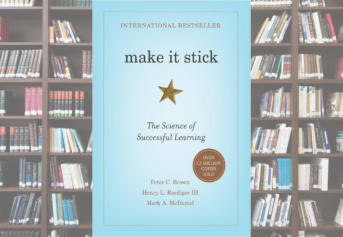
Effective Learning Strategies From “Making it Stick”
In the quest to master new skills or languages, one challenge stands out: making information stick. Drawing inspiration from Peter C. Brown’s Make It Stick, we’ll take a look at some effective…

In the quest to master new skills or languages, one challenge stands out: making information stick. Drawing inspiration from Peter C. Brown’s Make It Stick, we’ll take a look at some effective…

Once you’ve been learning a new language for a while, you may notice that the initial, rapid progress has slowed down. Welcome to the intermediate plateau—a phase in language learning that can…

Which is better for language learners, monolingual or bilingual dictionaries? This question often comes up. A monolingual dictionary explains the meaning of a word in the language that you are learning. A bilingual dictionary provides a translation…

I want to talk about language learning, the basics that is. The basics in a language are important. It is important to speak correctly, it is important to focus on key patterns,…

I had lunch earlier this week with a college professor who is head of the Asian language department in a large university here in Vancouver. He told me that a majority of…

Many people, even if they’ve only learned one foreign language, may only visit the country where the language is spoken once a year or once every few years, so it can be hard to maintain or improve those language skills. Not being able to maintain a language can lead to something many multilingual people fear: language attrition, or the weakening or loss of a language. In my case, I claim to have 16 languages, and so language attrition is a concern.

I can speak 17 or so languages to varying degrees of fluency. Some I speak really well, like French, Japanese, Mandarin and Spanish. Even in languages that I speak less well, like Swedish, German, or Russian, my accent is not too bad, people tell me.

I think that children learn faster than adults. There is ample evidence of this, for example amongst immigrants to Canada. Rare is the immigrant family where the children don’t speak English, or…

I want to cover the issue of input-based learning that I have spoken about in two past YouTube videos in Chinese and Japanese. It goes by different names but basically amounts to spending most of your time on listening, reading, working on your vocabulary and becoming familiar with the language rather than on output-activities or grammar-focused activities.

Human beings are learning machines. We spend our lives learning. We can’t help but learn. The only question is what we will learn and how it will affect our lives.
I've been learning languages for over 50 years and I've tried all kinds of approaches.
Discover Steve’s Method
I have never learned as quickly or as enjoyably as I do now on LingQ.
Try LingQ Now